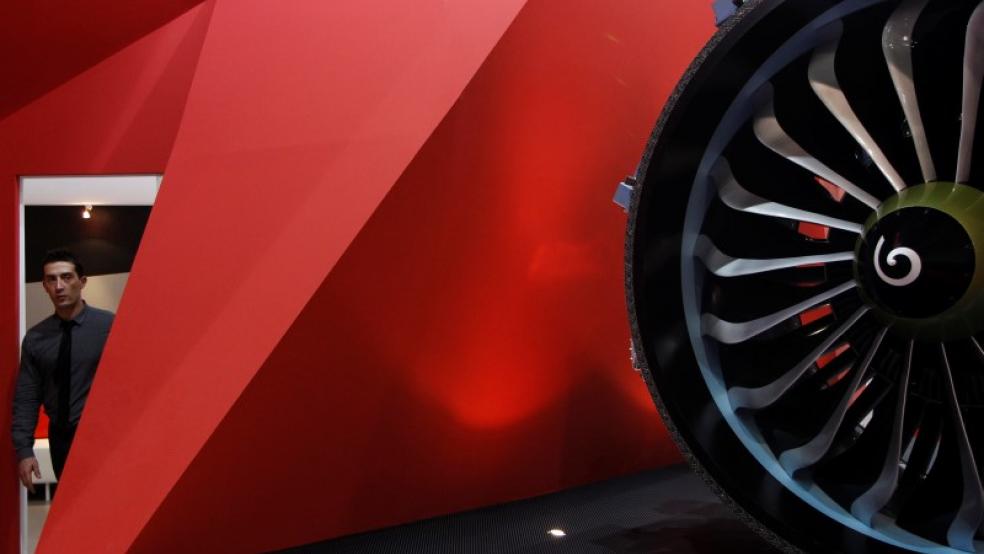DUBLIN (Reuters) - CFM International said on Thursday it is 4-5 weeks behind schedule in producing its new LEAP jet engine for Airbus and Boeing jets, but remains confident about ramping up output this year.Company executives said it was also handling queries from planemakers about potential future increases in demand.The engine maker, co-owned by General Electric and France's Safran , aims to produce 1,100-1,200 of the fuel-saving engines in 2018 after delivering 459 last year, executives said on a media conference call on Thursday.CFM, which supplies all engines for the Boeing 737 and competes with Pratt & Whitney to power the Airbus A320neo, is in the midst of a product changeover while handling higher than expected demand for the older CFM56.Executive vice-president Francois Bastin said LEAP production is 4-5 weeks behind schedule but added there is no slowdown in the rate at which reduction is planned to increase. The Cincinnati-based venture is working to catch up on production, and is meanwhile having to address teething issues with the version of the LEAP-1A engine developed for Airbus.CFM is about half way through overhauling some 70 LEAP-1A engines after quality problems with a turbine disc, announced by Safran last July, executive vice-president Allen Paxson said.The problem is different from one that disrupted flight tests of the Boeing 737 MAX last year, but the part of the engine involved includes some of the same suppliers, he added.A further problem with the coating used on a part inside the Airbus version has triggered efforts to allow the engines to stay on the wing for longer before they need to be maintained.Deliveries of the competing Airbus A320neo family have been delayed mainly by technical problems with the Geared Turbofan engine from Pratt & Whitney, a unit of United Technologies , but also by industrial issues at CFM, Airbus says.CFM had earlier targeted 1,200 deliveries this year, but executives said it was not toning down its assessment of production capabilities or the state of its huge supply chain.As LEAP engine production cranks up and airlines respond to an unexpectedly strong rise in traffic numbers, CFM has been responding to higher demand for current-generation engines.Planemakers have meanwhile begun sounding out CFM about pushing single-aisle aircraft production plans higher, beyond their targeted levels of up to 60 aircraft a month each for Airbus and Boeing by 2019."We are answering requests of the airframers for information about our ability to support possible higher rates. These are nothing but the standard discussions we have with manufacturers," Bastin said.Industry sources say Airbus is evaluating the case for raising A320 production as high as 70 jets a month.The industry is already accelerating at a record pace on the back of demand led by emerging markets, but engine makers have been particularly wary about overtaxing their suppliers.Air Lease Chairman Steven Udvar-Hazy told the Airline Economics conference in Dublin this week that current production plans were "realistic," barring a setback in demand.CFM said it had received orders for 3,444 engines worth $46 billion at list prices in 2017, including 2,870 LEAP engines.It has so far won orders or commitments for 14,270 LEAP.CFM reiterated that it was ready to work on a potential new mid-market airplane studied by Boeing. There has been speculation that such a plane could be offered commercially to airlines this year, but much depends on what engine makers can offer and when."We are supporting (the) Boeing timeline and project and at this stage it is hard to say anything certain about what solutions we will be providing," Bastin said. (Reporting by Tim Hepher; Editing by Susan Fenton)

